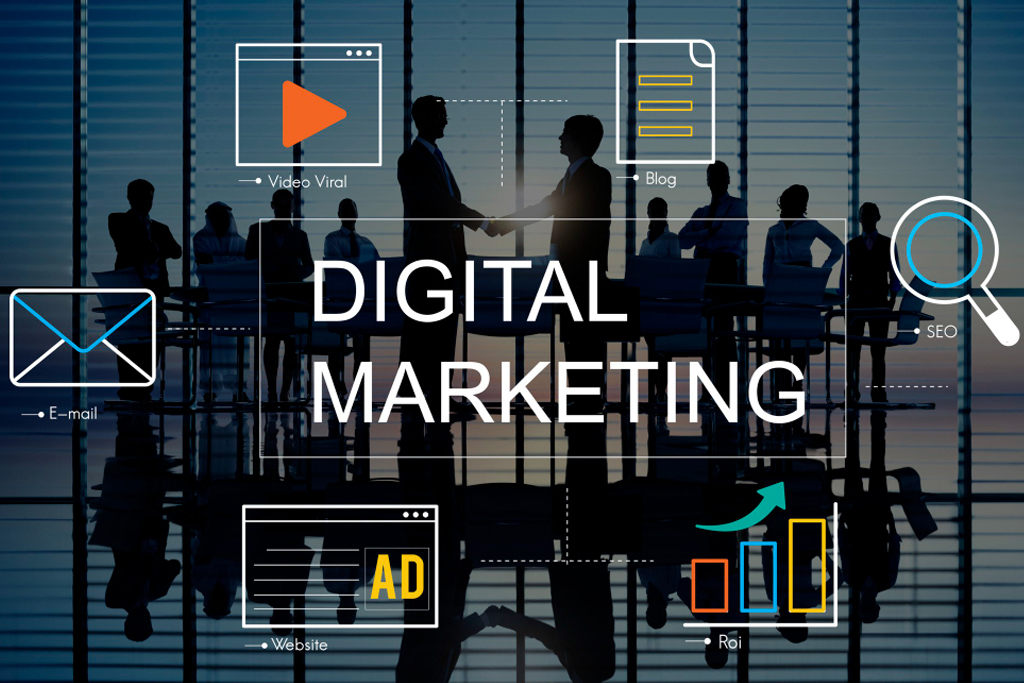
Digital transformation and its significance in reshaping business models, processes, and customer experiences are paramount in today’s digital landscape. Digital Marketing is the integration of digital technologies into all aspects of business operations, leading to fundamental changes in how organizations operate and deliver value to customers. The introduction highlights the imperative for organizations to embrace digital transformation to remain agile, innovative, and competitive in a rapidly evolving digital economy. By leveraging Digital Marketing strategies such as Content Marketing, Email Marketing, Search Engine Optimization, and Social Media Marketing, organizations can enhance their reach, engage more effectively with customers, and drive meaningful interactions that foster brand loyalty and business growth.
Theoretical Foundations of Digital Transformation
Building upon the introduction, this section delves into the theoretical foundations of digital transformation, drawing from management theories, innovation theories, and technology adoption frameworks. It explores concepts such as disruptive innovation, digital maturity models, and the technology adoption curve, which provide insights into the drivers, stages, and challenges of digital transformation. The discussion also examines the role of leadership, culture, and organizational change in driving successful transformation efforts. Digital Marketing plays a critical role here, as strategies like Content Marketing and SEO are crucial for building brand authority and visibility in a crowded marketplace.
Drivers and Enablers of Digital Transformation Acceleration
This section examines the key drivers and enablers that accelerate digital transformation initiatives within organizations. Market pressures, competitive dynamics, customer expectations, regulatory changes, and technological advancements compel organizations to expedite their transformation efforts. The discussion explores how organizations leverage enablers such as agile methodologies, cloud computing, data analytics, and emerging technologies to accelerate the pace of transformation. Digital Marketing strategies, including targeted Email Marketing and Social Media Marketing, are vital enablers, providing channels for real-time customer engagement and feedback that can inform strategic decisions.
Agile Transformation Frameworks
This section explores agile transformation frameworks and methodologies that organizations adopt to accelerate their digital transformation journeys. Frameworks such as Agile, DevOps, Lean, and Design Thinking promote iterative development, cross-functional collaboration, and rapid experimentation. The discussion examines how Evoquesys applies agile principles and practices to break down silos, streamline processes, and deliver value to customers more quickly and efficiently. Digital Marketing strategies, such as A/B testing in Content Marketing and email campaigns, mirror Agile’s iterative approach, enabling marketers to continuously refine their tactics based on real-world data and customer feedback.
Digital Ecosystem Orchestration
The role of Digital Marketing in accelerating digital transformation is significant. Organizations cultivate ecosystems of partners, suppliers, developers, and customers to co-create value, drive innovation, and scale their digital initiatives. The discussion examines how platforms, APIs, and interoperable technologies enable seamless integration and collaboration within digital ecosystems, accelerating the delivery of new products, services, and experiences. Social Media Marketing and Content Marketing are essential for engaging these ecosystems, fostering a community around the brand, and driving collaboration.
Data-Driven Decision-Making
This section examines the importance of data-driven decision-making in driving digital transformation acceleration. Organizations harness data analytics, artificial intelligence, and machine learning to gain insights, anticipate trends, and make informed decisions in real time. Digital Marketing efforts, including SEO and Email Marketing, rely heavily on data to personalize experiences, optimize operations, and drive continuous improvement across the enterprise. By analyzing customer data from digital channels, organizations can tailor their marketing efforts to better meet the needs of their audience.
Customer-Centric Innovation
This section emphasizes the role of customer-centric innovation in accelerating digital transformation. Organizations adopt human-centered design principles, customer journey mapping, and rapid prototyping to co-create value with customers, iterate on ideas, and deliver meaningful experiences. The discussion examines how organizations leverage customer feedback, sentiment analysis, and social listening to inform product development and drive customer engagement. Digital Marketing, particularly through Social Media Marketing and targeted Email Marketing campaigns, plays a crucial role in gathering customer insights and fostering strong relationships.
Cultural Transformation and Change Management
The importance of cultural transformation and change management in accelerating Digital Marketing efforts is discussed in this section. Organizations must foster a culture of innovation, agility, and continuous learning to adapt to digital disruption and embrace change. Strategies for engaging employees, building digital capabilities, and overcoming resistance to change are explored to drive successful transformation outcomes. Embracing a digital-first mindset and integrating Digital Marketing across all levels of the organization can help drive cultural change and support ongoing transformation efforts.
Leadership and Vision
Leadership and vision are critical in accelerating digital transformation. Visionary leaders articulate a compelling vision for digital transformation, inspire and empower employees, and align stakeholders around common goals. The discussion explores the qualities and competencies of digital leaders, such as adaptability, strategic foresight, and emotional intelligence, which are essential for driving transformational change. Leaders must also recognize the importance of integrating Digital Marketing strategies, such as Content Marketing and SEO, to enhance the organization’s digital presence and engagement.
Case Studies and Examples
Through case studies and examples, this section showcases organizations that have successfully accelerated their digital transformation journeys. Examples from various industries, such as retail, finance, healthcare, and manufacturing, illustrate how organizations have leveraged agile methodologies, digital ecosystems, data-driven insights, and customer-centric innovation to drive rapid transformation and achieve sustainable growth. Successful integration of Digital Marketing, including effective use of Social Media Marketing and Content Marketing, is highlighted as a key factor in these transformation stories.
Challenges and Considerations
This section examines the challenges and considerations involved in accelerating Digital Marketing efforts. Issues such as legacy systems, technical debt, talent shortages, cyber security risks, and organizational inertia can impede progress and hinder agility. The discussion explores strategies for overcoming these challenges and fostering a culture of resilience, adaptability, and continuous improvement. Emphasizing the integration of Digital Marketing strategies, like SEO optimization and targeted Email Marketing, can help overcome these barriers and drive successful transformation.
The paper discusses future directions and emerging trends in digital transformation acceleration. Topics such as the impact of emerging technologies (such as blockchain, 5G, and quantum computing) on transformational change are explored. The growing importance of sustainability, ethics, and responsible innovation in Digital Marketing is highlighted. Additionally, the potential for new business models, ecosystems, and value propositions to emerge in the digital economy is considered, emphasizing how Digital Marketing will continue to evolve and play a critical role in shaping the future of business.



